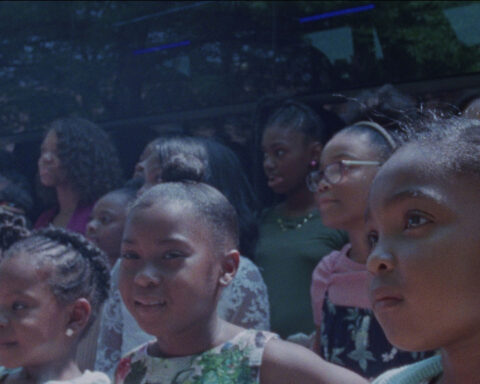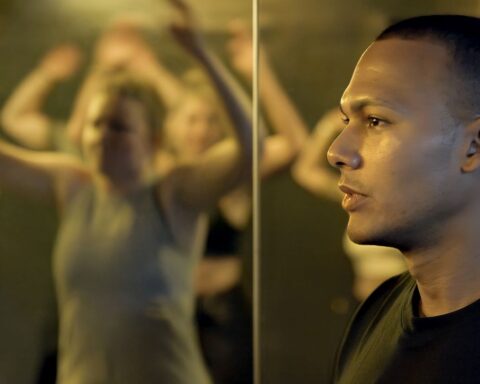Conviction
(Canada, 78 min.)
Dir. Ariella Pahlke, Nance Ackerman, and Teresa MacInnes
Three filmmakers invite four incarcerated women and one female guard to collaborate on a documentary. Powerful haikus, slams and drawings are shared and a lot of tears are shed. Convicting a society instead of its citizens, Ariella Pahlke, Nance Ackerman, and Teresa MacInnes gave all these women a voice in their new documentary Conviction. The outcome is an admirable collective and participatory endeavour, resolutely choosing community over punishment. Orange is clearly not the new black.
Bianca, Treena, Caitlin and Laura tell us about the structural lack of help and care incarcerated women have to deal with, inside and outside of prison. The filmmakers give the women a platform and the tools to express themselves, including a small digital camera. “It’s me. it’s my voice”, says Bianca, looking into her own lens. Their visuals and diary-like recordings are endlessly more relevant than the usual filler footage jamming up documentaries. Their poignant impressions witness both the desire and the fear of freedom.
“Record everything, even if you’re not good.” says Bianca to Laura when she’s released. The film debates issues like mental health and social support while also assuming its pertinent role as the therapeutic tool the incarcerated women badly need. A healing process is set in motion and looks at the circular dynamics of help and guidance: get support, get out and give back. We see the women struggle with prison-pregnancy, addiction and isolation but we also witness their second wind. They set up their own community-based project, From the Ground up, aiming to help women find their bearings after release. With the help of the filmmakers, an architect and an urban designer, they’re encouraged to hold on. Conviction walks the walk.
The subjectivity of the film, carried by the hopes, flaws and disillusions of the incarcerated women, pushes the film forward and makes it at least as powerful as Ava Du Vernay’s 13th. The films work, however, with very different tools. Where 13th relays on a hyperbolic cinematography and score, Conviction remains rather humble in scope and reach. You walk out of a screening of 13th knowing a lot about structural racism and the institutionalized and inherent injustice of the US justice system. Watching Conviction, you’ll learn about Treena’s toxic relationship and Caitlin’s personality disorder and how they have a fierce advocate in senator Kim Pate, previously the director of the Canadian Association of Elizabeth Fry Societies.
According to its opening credits, the film seeks to understand why women are the fastest-growing population of prisoners worldwide. While a lot of things are addressed, we still don’t have a clear answer by the time the end credits roll in. But leave that opening statement out and you have an intriguing essay film on how recidivism is cultivated by a very impersonal and cruel prison-industrial complex that produces prisons as alternatives to homeless shelters and treatment centres











